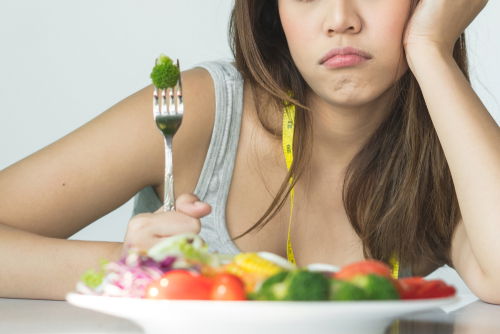Personalized May Be the Better Diet for You

If you have given a trendy diet your best effort but it still didn’t work, it was not the right diet for you. Both low-carb and low-fat diets have advantages and disadvantages. Personalized diet plans, on the other hand, provide plenty of choices with most restrictions being less than healthy foods. After challenging dieters to determine the lowest level of either fats or carbs that they would need to consume to not feel hungry while following their given diet, what mattered more than choosing carbs or fats was food quality and protein intake. Since a gram of fat has twice as many calories as the same amount of carbs or proteins, for years dieters were told to avoid fats. Now we know, consuming healthy fats is necessary for your body to absorb important nutrients. Although useful for short-term weight loss, low-fat diets may not be healthy or successful over the long-term, especially if you fail to make healthy food choices.
Primary Types of Carbohydrates
Carbohydrates are called simple or complex based on their chemical makeup as well as how your body utilizes them. Carbs are found in fruits, grains, vegetables, and dairy products. Listed below are the three primary types of carbohydrates, which are used by the body for energy and other bodily functions, including:
- Sugars - Sugar is a type of carbohydrate that is usually referred to as a simple carb or fast burning carbohydrate. Simple sugars, which include table sugar, fruit sugar and milk sugar, provide a quick source of energy.
- Starches - A starch is a type of carbohydrate that is made up of long chains of glucose. Your body produces digestive enzymes to break down all types of starches. Basically, plants make starch to store glucose as fuel for your body’s cells.
- Fiber - Fiber comes from plant-based foods. There is no fiber in animal products, such as milk, meat, poultry, fish or eggs. Fiber is the non-digestible part of fruits, vegetables, grains, nuts and legumes that passes through the digestive tract but is not digested.
Not all carbohydrates are bad for weight control like refined or added sugars in processed foods. Although there are many common names for sugar products, table sugar is sucrose, fruit sugar is fructose and the sugar in milk is called lactose.
How Fat Is Stored and Broken Down for Energy
Since all chemical reactions obey the Law of Conservation of Matter, fat cannot be converted to energy nor can it magically turn into muscle tissue. According to CNN Health, a dieter who loses 10 pounds will exhale 8.4 pounds through his or her lungs and 1.6 pounds is converted to water and exhausted by breath or urine. A lot of confusion exists around the process of fat loss during dieting. Excess energy is stored in fat cells as triglycerides and the amount of surplus can affect your health and body shape. When you have an energy deficit, fat stores are released, broken down for fuel, and exhausted as breath or urine. You have two kinds of fat cells. White fat cells are more common than brown fat cells, but both help regulate everything from your body weight to your metabolic rate for burning energy. It is important to consult with a weight loss specialist prior to starting your fat loss journey to prevent or limit the potential negative side effects commonly seen in failed diets.
By submitting this form, you agree to receive marketing text messages from us at the number provided, including messages sent by autodialer. Consent is not a condition of any purchase. Message and data rates may apply. Message frequency varies. Reply HELP for help or STOP to cancel. View our Privacy Policy and Terms of Service.

